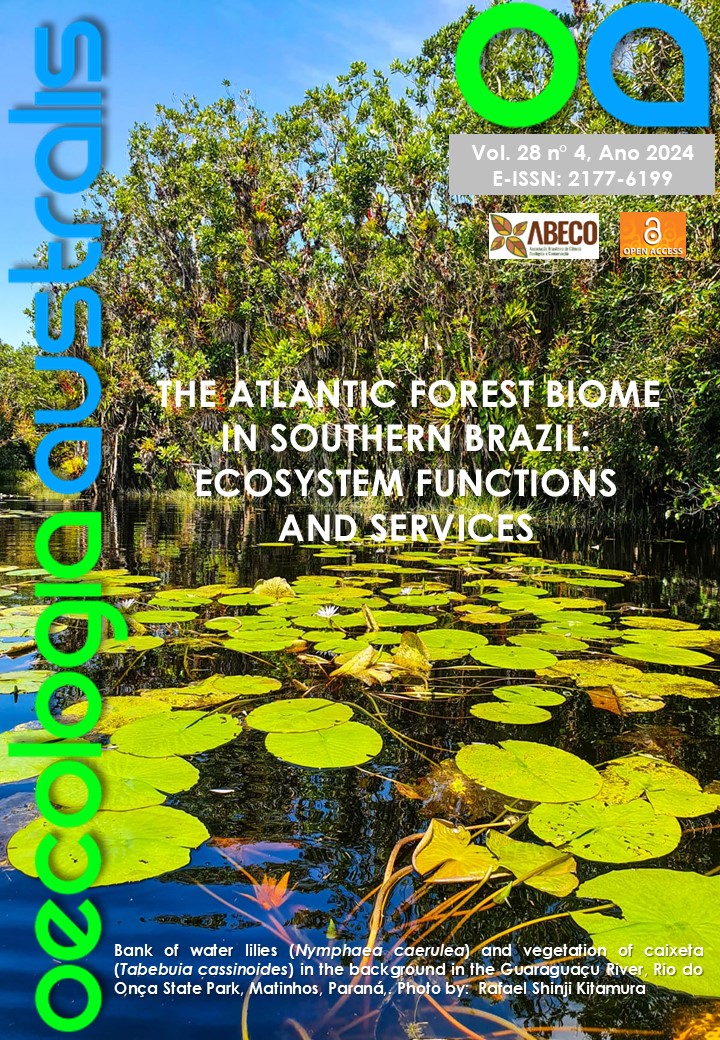A SYNTHESIS OF KNOWLEDGE ABOUT WATER QUALITY IN THE UPPER PARANÁ RIVER FLOODPLAIN
Water Quality in Upper Paraná Floodplain
DOI:
https://doi.org/10.4257/oeco.2024.2804.01Abstract
Good water quality is essential for human activities, including recreation, water supply, agriculture, industry, and for maintenance of biodiversity. However, the high demand for resources has led to a reduction in the availability and quality of water. Hence, the objective of study was to make a synthesis of knowledge about water quality in a floodplain located in the basin with the highest population concentration in Brazil (Upper Paraná River floodplain), which is influenced by different anthropogenic impacts. We performed a literature search on the Google Scholar, Scopus and Web of Science databases using the following combination of keywords and operators: (Limnology OR Cyanobacteria OR Water quality) AND (“Paraná River Floodplain”). Were identified 58 publications from 1997 to 2023, and collected the following information from each article: publication year; nationality of the journal published; study approach; type of environment; period of study; parameter of study and predictor variables. The generalised linear model showed a significant increase in the number of publications over time. The articles were mainly published in international journals and used the field approach, with an emphasis on studies carried out in lentic environments during a short period (< 10 years). Cyanobacteria and abiotic variables were the most frequently used parameters of study, while the predictor variables with the greatest influence on the studies were phosphorus, nitrogen and water transparency. Thus, considering that in the studied region, water is used for several ecosystem services, it is concerning that the results still show a gap in studies on this topic in this region.


